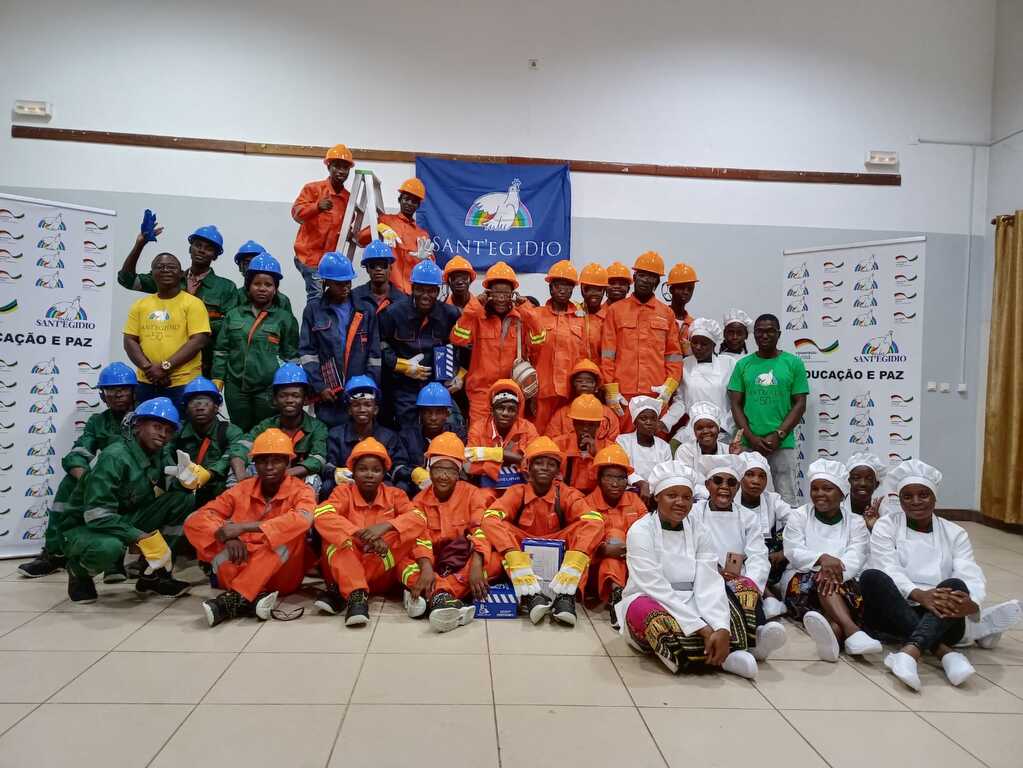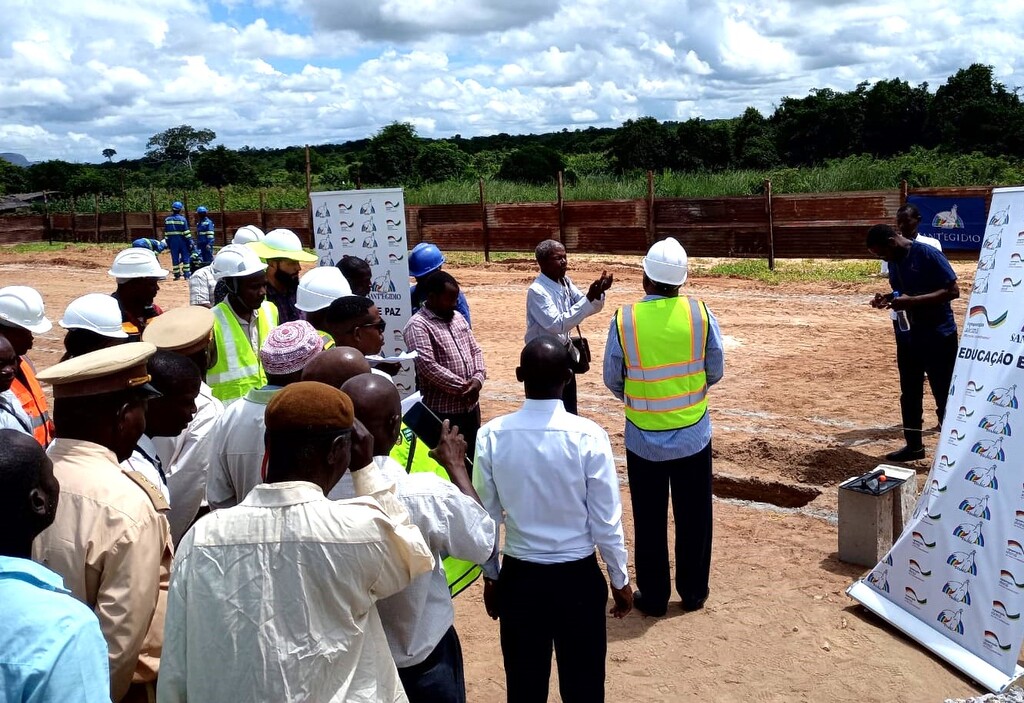The conflict in the north of Mozambique is one of the 'forgotten wars', i.e. conflicts that have been going on for years, and, in many parts of the world, in media silence and general indifference. Nevertheless they claim victims and cause destruction. In the last three months, terrorist attacks on civilian populations have resumed with sheer ferocity: it is estimated that over 112,000 people have had to flee their villages, 62% of them are children. Mozambique in fact has a very young population, approximately 52% under 18 years of age.
The Community of Sant'Egidio has been present in these martyred areas since the outbreak of violence, providing assistance programmes, welcoming and promoting the reintegration of displaced persons and refugees. The proximity with the displaced population and the many encounters we have had in recent years are at the origin of a new project aimed at offering new opportunities to IDP youth.
The programme is called 'Education and Peace' and is the result of collaboration between Sant'Egidio, the DREAM programme and German Cooperation. It includes the construction (building or renovation) of 11 primary schools - the current structures are very precarious and insufficient to accommodate all school-age children - and the provision of scholarships for technical and vocational courses.
On 20 March, the foundation stone of the first of these schools was laid in Rapale, Nampula district. More than 300 young people have already enrolled in various training courses in the health, agricultural, technical and food sectors in the provinces of Cabo Delgado and Nampula.
The value of these training courses can be understood in the context of the total lack of prospects for displaced young people. Often, it drives them to join the very people who caused their flight, the death of family members, the destruction of their homes. Recruitment into terrorist groups sometimes appears as the only real prospect to escape from hunger and find a 'job'.
Vocational training offers an opportunity to work and live, which contrasts with terrorism's project of death. This is why these courses have given many people hope that violence is not the only option.
The humanitarian situation continues to be dramatic and food shortages are a major problem. The Communities of Pemba and Namapa are present among the refugees, especially among those arriving in these weeks, and regularly distribute food kits.















